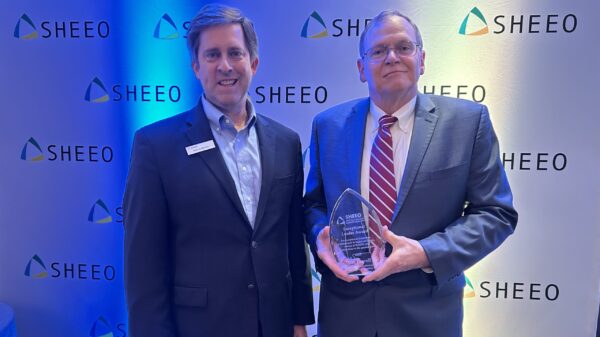After spending two meetings hearing from experts, the Alabama Wage Gap and Workforce Task Force began “making the sausage” Monday.
“Today is about building consensus around the direction that we want to begin to go in terms of making formal recommendations to the Alabama Legislature,” Melanie Bridgeforth, chair of the task force, told the other members. “We got to help them whittle it down and be laser focused on what are some of the key opportunities and policy levers that they as a decision-making body can pull to begin to close labor force and wage gaps for Alabama workers.”
Bridgeforth said the key finding of the task force over its first two meetings is that Alabama women are paid less across the board compared to men and that bridging that wage gap could boost Alabama’s economy.
Different members of the committee took the conversation from there, highlighting areas they would like to see brought forward once the committee makes its formal recommendation to the Legislature.
Following the line of a recommendation from an expert the force heard from in an earlier meeting, raising the minimum wage was brought forward as one possible policy goal for the task force to recommend, as well as adjusting family paid leave to keep women from falling behind in their careers during the “mommy years” when they temporarily leave the workforce.
“When I had my son 16 years ago, I had to take a little bit of time to focus on rearing him and keeping my household together. And so my career took a backseat for a good seven or eight years,” said Amanda Foster, CFP with Practical Financial Solutions. “So as a 52-year-old woman in this industry, I should be well set in terms of how, you know, being in this financial services industry— which everyone I think would agree is probably fairly lucrative for most people who stay with it for 30 years— but, you know, despite the fact that I’ve been in it for 25 to 30 years now, having taken that time off, it definitely it does a number on you in terms of where you are in your career path.”
Foster also recommended the possibility of banning employers from asking about salary history, a policy she called “the low-hanging fruit” from what the committee heard in its previous meetings.
Mike Polis, director of the Alabama Society of Human Resources (SHRM) State Council echoed Foster’s position on banning questions about salary history, noting he had already removed that question from the application at his company voluntarily in response to Alabama’s Clarke-Figures Equal Pay Act. He also said the $7.25 minimum wage is far behind the current reality and that his company like many others has already moved toward offering higher wages.
Jenna Bedsole, managing shareholder at Baker Donelson brought forward an idea that hadn’t been touched upon in previous meetings.
“I’m going to take a page out of what the law has created in terms of sexual harassment,” Bedsole said. “So in the federal law, there is a defense for employers that if they have a well-publicized policy that prohibits discrimination and harassment and there is a means by which an employer can receive complaints of discrimination and harassment, and the employer investigates those complaints that they receive and you know, have some sort of remedial action if it’s required or some counseling following, that there’s a defense for employers when there is a case for sexual harassment has been brought.”
Bedsole said having an Equal Pay audit at businesses could give companies the opportunity to rectify equal pay violations more regularly and hopefully prevent litigation altogether by creating a process for issues to be resolved between the employer and employee.
The task force also talked about the gap in education and figuring out how to make a policy recommendation that would encourage STEM and entrepreneurial education for girls to prepare them to compete for jobs in those fields.
Another big focus of the task force is improving childcare access to ensure women can work without massive childcare costs.
Kendra Key, principal for Community Economic Development, suggested childcare workers are facing a wage gap and recommended looking into how they could be supported through federal funds. Rep. Adline Clark, D-Mobile, co-author of the eponymous Clark-Figures Act, said there is also woefully inadequate funding left over after paying workers to go toward facility and curriculum costs.
Task force members suggested it will take a federal and state investment to boost the childcare infrastructure.
The task force ended the meeting by creating subcommittees that will delve further into these topics and prepare recommendations as the task force approaches its final two meetings in November and December to vote on a formal recommendation to the Legislature.






















































